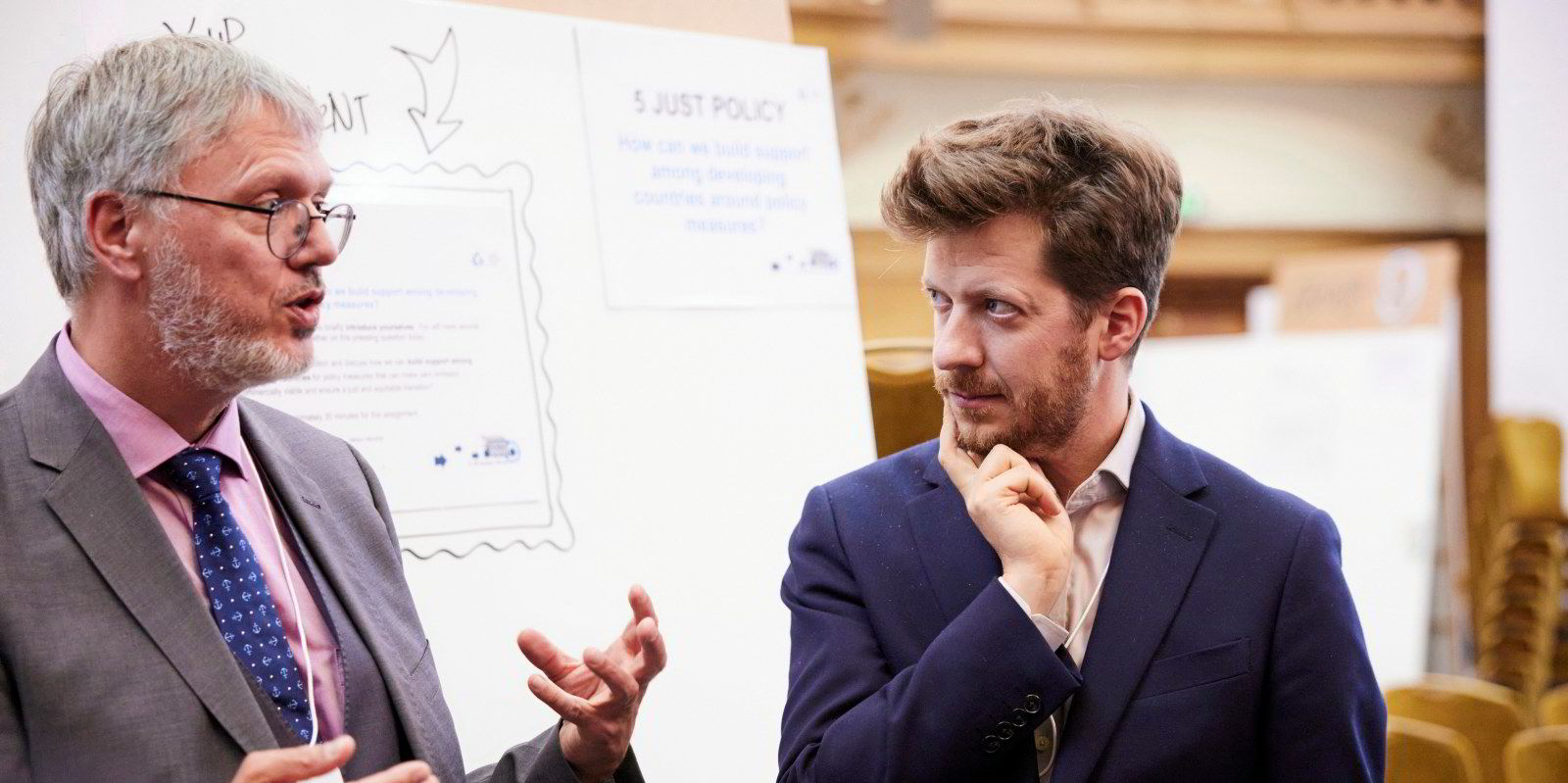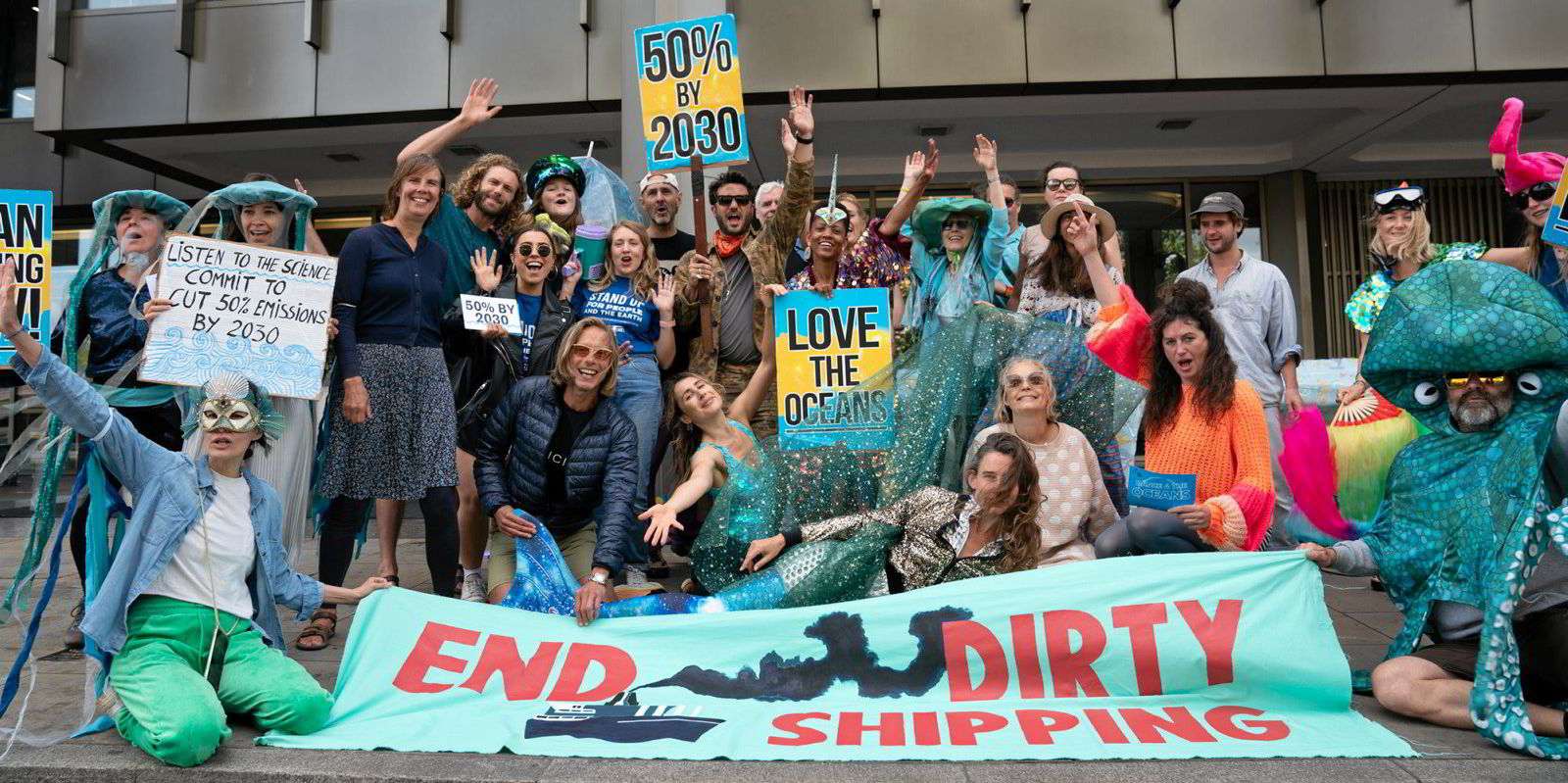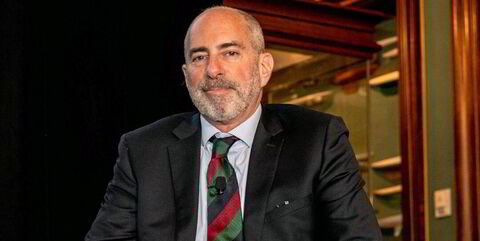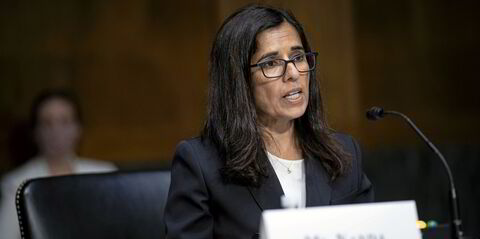As the IMO’s MEPC 80 meeting opens in London, there are concerns over whether an effective agreement can be reached.
The draft text generated by a working group at the International Maritime Organization is not aligned with halting global temperature rises at 1.5C, according to researchers and environmental groups tracking the negotiations.
Consultancy UMAS said the United Nations shipping regulator made “little headway” at meetings held that closed on Friday in preparations for a critical meeting of the Marine Environment Protection Committee this week.
Ahead of that meeting, several countries and other delegations have been pressing for, in addition to a zero emissions goal in 2050, targets in 2030 and 2040 that track the Science Based Targets initiative’s trajectory for aligning shipping’s decarbonisation with the Paris Agreement goal of capping global warming at 1.5C.
For the US, UK, European Union and other countries, that means chopping greenhouse gas emissions by 37% in 2030 and by 96% a decade later.
TradeWinds reported earlier on Friday that the draft crafted at the working group drops zero emissions in favour of net zero and includes “indicative checkpoints” calling for a 20% cut in 2030 and a 70% reduction in 2040.
If these number stick, it will stray from the 1.5C temperature goals, said UMAS, many of whose researchers also work as academics at the University College London’s UCL Energy Institute.
“Like the emissions they hope to reduce, much remains in the air after this week’s IMO negotiations,” said UMAS policy lead Aly Shaw.
“The member states must strive to deliver a strategy that is 1.5 aligned and committed to a just and equitable transition for shipping.”
Undecided
UMAS said key details remain undecided heading into the MEPC meeting, which starts on Monday. In addition to whether the revised greenhouse gas strategy will be aligned with the Paris Agreement, the committee will have to decide whether emissions will be calculated across the life cycle of fuels to avoid shifting climate pollution from sea to land.

Also ensuring a “just and equitable transition” will be a key subject of debate, the consultancy said. Already hotly debated is midterm measures such as a fuel standard and putting a price on carbon.
The UMAS researchers said that while there was coordinated opposition to a levy on carbon, a majority of countries were in favour of the measure and of adopting it by 2025.
The Clean Shipping Coalition, an alliance of environmental organisations, said civil society groups are concerned about developments at this week’s working group meetings, with a particular focus on the 2030 and 2040 targets.
“Nothing matters more than what happens in the next few years and a level of ambition focused only on 2050 sends a signal that we have plenty of time and there’s no need to rush,” said John Maggs, the coalition’s president. “Everyone will sit and wait, investment will be withheld and these precious years will be wasted.”
Delaine McCullough, campaign manager for shipping emissions at Ocean Conservancy, said a strategy that only focuses on net zero by or around 2050, without recognising the need for deep cuts in the near term, guarantees business as usual.
‘Brink of historic failure’
“The IMO is on the brink of historic failure in setting a 1.5C-aligned emissions reduction strategy — putting the world on the brink of catastrophic climate breakdown,” she said.
IMO watchers said China, Brazil, Argentina, South Africa, Belarus, Uruguay, Peru, Venezuela, Ecuador, Saudi Arabia, Angola, Colombia, Paraguay, Cuba, Russia and Bangladesh resisted tough interim targets.
Many in shipping are focusing their attention on midterm measures, particularly proposals to put a price on carbon.

Intercargo, the bulker owners’ group, urged support for the International Chamber of Shipping’s proposed fund and reward mechanism.
“On this occasion, Intercargo reiterates the importance that the basket of midterm measures should be both simple and effective, so as to be efficiently implemented by ships worldwide,” said secretary general Kostas Gkonis.

Disappointment over the working group’s draft puts added pressure on the MEPC next week in what is seen as a make-or-break moment for the IMO’s decarbonisation efforts.
“This is it. Next week is the last chance to credibly align this critical sector and enabler of world trade with 1.5,” said UMAS director Tristan Smith, who is an associate professor of shipping and energy at UCL Energy Institute.
“The main text going into next week is not 1.5-aligned, but it still can be if there is a change in the dynamic.”
Read more
- Podcast: Hopes and fears for a crucial IMO meeting on shipping emissions
- Carnival ‘incredibly proud’ of decarbonisation efforts despite green group’s low marks
- Navigator nearly ‘good to go’ on carbon carrier orders as it targets UK with Bumi Armada
- Editor’s selection: Kitack’s rallying call; What next in Eagle Bulk-Danaos tussle?; and life lessons from shipping journalism
- Streetwise: How Nasdaq-listed tanker owner Top Ships turned ‘$43.4trn’ into 60 cents



